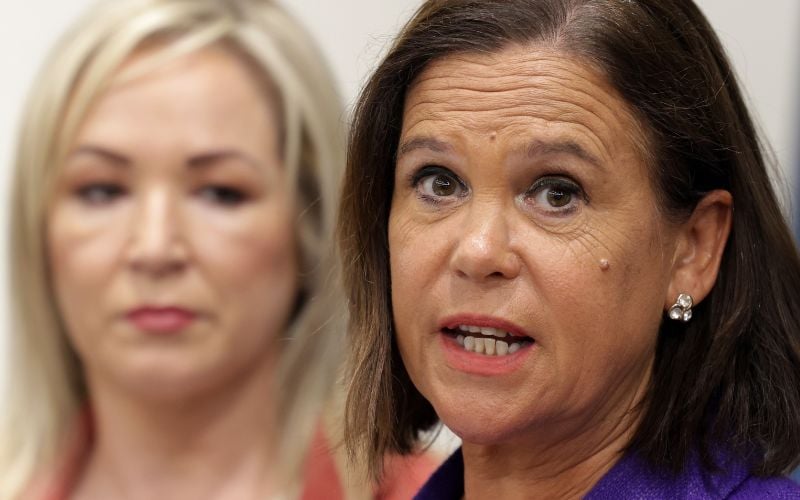Angry clashes have broken out amongst leading Irish politicians of Ireland's two main parties following comments made by former Taoiseach (Irish leader) John Bruton that the 1916 Easter Rising and subsequent War of Independence were "completely unnecessary."
As previously reported, the former Fine Gael leader caused uproar in recent days with his controversial remarks that Britain would have ceded independence to Ireland without an armed struggle.
His contentious comments, which have since been dismissed by a Fianna Fail TD as "delusional," were made in a submission to the Irish government requesting that the 100th anniversary of the passing of the Home Rule Bill on September 18, 1914 be marked as part of the decade of commemoration.
Home Rule was suspended because of Northern unionist opposition and the outbreak of the First World War.
But Bruton argued that Home Rule was on the statute books and would have been implemented at the end of the war in 1918 – which he claimed would have paved the way to a more peaceful path to full independence.
But The Irish Times reports that Fianna Fail agriculture spokesman Éamon Ó Cuív has vehemently challenged his views and described his comments as "delusional."
O Cuiv, grandson of Eamon de Valera – who was leader of Ireland's struggle for independence from the UK in the War of Independence and of the anti-Treaty opposition during the ensuing Civil War before going on to found Fianna Fail – said there was no validity to his arguments.
He insisted there was no evidence to suggest that Britain would have allowed the Irish Free State to have its own army or foreign policy, had it not been for the Easter Rising and War of Independence.
He also argued that the Home Rule on offer in 1914 was far less than what the principality of Wales has at the moment as part of the United Kingdom and added that the British would not have given independence to Ireland without a fight.
Earlier this summer Bruton had told of his belief that the Easter Rising had damaged the Irish psyche and made people more pro-violence.
But he triggered even more controversy with his latest comments that the violence of that period "should not be retrospectively justified in the other commemorations that are to be undertaken over the next 10 years."
He maintained that Home Rule would have allowed Ireland to pursue a path towards independence and argued that the nation would probably have got what it got in 1921 by the end of the 1920s, but have avoided the bloodshed and bitter divisions that followed.
He also provoked a storm by claiming the decision by Sinn Fein to abstain and to kick-start a guerrilla war in 1919 against the British led to partition and the setting-up of the Stormont Parliament in newly-formed Northern Ireland in 1920.
But, as noted by The Irish Times, O Cuiv hit back, arguing that the Easter Rising saved thousands of lives, insisting it gave the Irish public the courage to resist conscription and pointing out that recruitment to the British army dropped sharply following the Rising.
He also argued that dominion status for Ireland would have forced many more Irish men to fight in World War II, adding that thousands more Irish lives would have been lost.
He said: "If Britain had the commitment to democracy that John Bruton claims it had, why in 1918, when the Irish people clearly voted in a democratic election organized by the British themselves for independence, didn't they just say they would accede to the wishes of the people?"
Fianna Fail Senator Mark Daly has also voiced his criticisms of Bruton's views, insisting that Easter Rising descendants are "upset and angered" by his comments.
He added that his remarks give the impression that the lives they sacrificed for Ireland in the armed struggles were in vain.
Meanwhile, Daly has called on recently-appointed Minister for Arts, Heritage and the Gaeltacht, Heather Humphreys, to clarify her views on the Rising.
Humphreys is the chair of the committee tasked with organizing the various upcoming commemorations of the revolutionary struggles and World War 1.
Daly said: "It would seem deeply inappropriate for the chair of the group tasked with organizing the commemorations to hold the same views as those expressed by the former leader of her party."




Comments